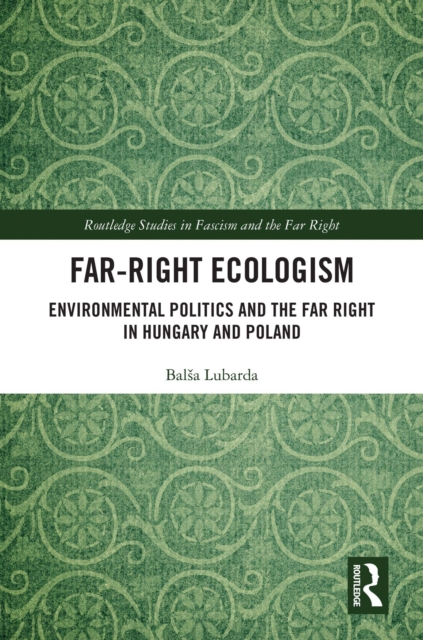
Far-Right Ecologism : Environmental Politics and the Far Right in Hungary and Poland PDF
by Balsa Lubarda
Part of the Routledge Studies in Fascism and the Far Right series
Description
Far-Right Ecologism explains how the ongoing mainstreaming of the far right has prompted greater engagement with a range of topics, including the environment. Behind the facade of vote-winning strategies, the far right has provided a substantive ideological engagement with the natural environment. Building on the nationalist bent of early green thought and the perceived nexus of pristine nature and cultural purity, Far-Right Ecologism has ideologically adopted the green elements of other ideologies, such as conservatism and fascism, but also of those considered to be "thin-centred", such as nationalism and populism. Through an authentic experience of learning from the Eastern European, post-socialist realms, this book explores the ideology, ecological discourse and policy proposals behind the increasing impact of far-right actors on environmental politics in Hungary and Poland. Each chapter begins with stories from the interviewees to illustrate how the far right in Hungary and Poland attempts to permeate environmental politics and even forge partnerships with green actors through specific, local-based policy contributions. Drawing on the findings from a range of sources, such as electoral programs, ideological texts and manifestos, social media and public speeches, policy proposals and more than 40 in-depth interviews with far-right representatives, this book also assesses epistemological and methodological challenges in examining the environmental dimension of far-right, post-socialist politics. This book will be valuable reading for researchers with an interest in the far right, environmental politics and Central Eastern Europe.
Information
-
Download - Immediately Available
- Format:PDF
- Pages:152 pages
- Publisher:Taylor & Francis
- Publication Date:01/08/2023
- Category:
- ISBN:9781000919592
Other Formats
- EPUB from £35.99
Information
-
Download - Immediately Available
- Format:PDF
- Pages:152 pages
- Publisher:Taylor & Francis
- Publication Date:01/08/2023
- Category:
- ISBN:9781000919592










